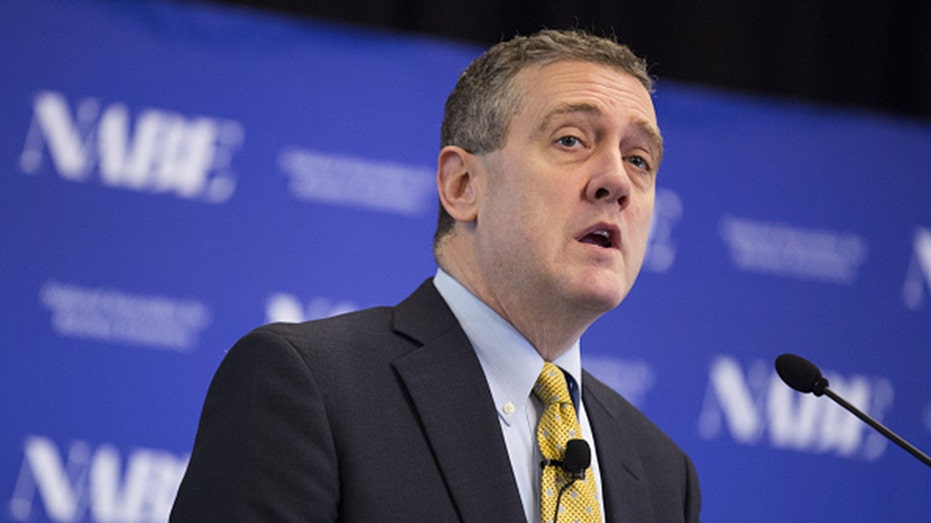Fed's Bullard says interest rates need to rise above 3% to quell inflation
Bullard warns Fed 'credibility' on the line as inflation soars
Fed following ‘aggressive’ rate hikes, may ‘lead to recession’: Kyle Bass
Hayman Capital Management founder and CIO Kyle Bass argues if the Federal Reserve follows an ‘aggressive hiking regime into oil price spike,’ it may lead to recession.
St. Louis Federal Reserve President James Bullard said Friday the U.S. central bank needs to raise interest rates much faster in order to combat the hottest inflation in four decades – or risk losing its credibility.
Bullard was the lone dissenter on Wednesday, when the Fed voted to hike the benchmark federal funds rate by 25-basis points for the first time since 2018, bringing to an end the ultra-easy monetary policy put in place to prop up the economy throughout the COVID-19 pandemic.
He believed the central bank needed to more aggressively raise rates by a half percentage point and begin unwinding its nearly $9 trillion balance sheet.
FED RAISES INTEREST RATES FOR FIRST TIME IN 3 YEARS, PROJECTS 6 MORE HIKES AS INFLATION SURGES
"The combination of strong real economic performance and unexpectedly high inflation means that the Committee’s policy rate is currently far too low to prudently manage the U.S. macroeconomic situation," Bullard wrote in a statement explaining his decision. "The Committee will have to move quickly to address this situation or risk losing credibility on its inflation target."

James Bullard, president and chief executive officer at the Federal Reserve Bank of St. Louis, speaks during the National Association of Business Economics' (NABE) Economic Policy Conference in Washington, D.C., U.S. on Monday, Feb. 26, 2018. (Joshua Roberts/Bloomberg via Getty Images / Getty Images)
Economic projections released after the Fed's meeting show that policymakers expected six more, similarly sized increases over the course of 2022 after consumer prices hit a 40-year-high. It marks a considerable shift from just six months ago, when half of the central bankers believed interest rate increases were not warranted until at least 2023. Fed officials also expect inflation to remain elevated, ending 2022 at 4.3% – far above the Fed's annual target of 2.3%.
"With appropriate firming in the stance of monetary policy, the committee expects inflation to return to its 2 percent objective and the labor market to remain strong," the Fed said in its post-meeting statement. It noted the committee anticipates "that ongoing increases in the target range will be appropriate."

FILE - In this Jan. 29, 2020 file photo, Federal Reserve Chair Jerome Powell pauses during a news conference in Washington. (AP Photo/Manuel Balce Ceneta, File / AP Newsroom)
But Bullard said the Fed needed to go further in fighting red-hot inflation, laying out a case for raising rates to 3% by year's end – the equivalent of about 12, quarter-point hikes. He argued that rising consumer prices are taking a toll on Americans, particularly those who are lower-income.
As evidence for his argument, Bullard pointed to 1994 and 1995, when the Fed bucked investor expectations and raised rates much faster than expected, hiking from 3% to 6% in that time frame.
GET FOX BUSINESS ON THE GO BY CLICKING HERE
"The results were excellent," he said. "The Committee achieved 2% inflation on average and the U.S. economy boomed during the second half of the 1990s. I think the Committee should try to achieve a similar outcome in the current environment."
The meeting came one week after the Labor Department said the consumer price index rose 7.9% in February from the previous year, marking the fastest increase since January 1982, when inflation hit 8.4%. The CPI – which measures a bevy of goods ranging from gasoline to health care – rose 0.8% from January.





















